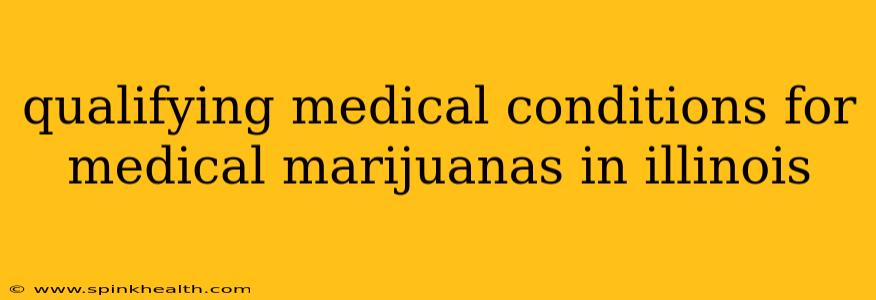The journey to obtaining a medical cannabis card in Illinois can feel like navigating a maze, especially when understanding the qualifying conditions. This isn't just about paperwork; it's about accessing a potential treatment option for serious health issues. Let's unravel the complexities and shed light on the path to medical marijuana access in the Land of Lincoln.
My own experience started with debilitating migraines. The constant, throbbing pain was impacting every aspect of my life – my work, my relationships, even my ability to simply enjoy a quiet evening at home. Traditional medications offered little relief, and the side effects were often worse than the headaches themselves. That's when I started researching alternative treatments, and medical cannabis emerged as a potential solution.
The first hurdle was understanding the qualifying conditions. Illinois has a fairly comprehensive list, but the specifics can be confusing. Let's break down some of the key categories and address common questions.
What are the Qualifying Medical Conditions for Medical Cannabis in Illinois?
The Illinois Medical Cannabis Pilot Program allows for patients with a wide range of debilitating medical conditions to access medical marijuana. These conditions are categorized, and it's important to note that this isn't an exhaustive list, and the program is constantly evolving. Always refer to the official Illinois Department of Public Health website for the most up-to-date information.
Here are some of the major categories of qualifying conditions:
- Epilepsy or other seizure disorders: This includes conditions like Dravet syndrome, Lennox-Gastaut syndrome, and other forms of epilepsy that haven't responded to traditional treatments.
- Multiple sclerosis (MS): The debilitating symptoms of MS, such as muscle spasms and chronic pain, can often find relief with medical cannabis.
- Amyotrophic lateral sclerosis (ALS): Also known as Lou Gehrig's disease, ALS is a progressive neurodegenerative disease. Cannabis may help manage some symptoms.
- Cancer: Patients undergoing chemotherapy and radiation therapy often experience debilitating nausea, vomiting, and pain. Medical cannabis can help alleviate these side effects.
- Crohn's disease: This inflammatory bowel disease can cause severe abdominal pain, diarrhea, and weight loss. Cannabis may offer some relief from these symptoms.
- Glaucoma: While not as commonly treated with cannabis as some other conditions, it can help manage intraocular pressure.
- HIV/AIDS: Patients living with HIV/AIDS often experience a range of symptoms, including pain, nausea, and weight loss. Medical cannabis may help improve quality of life.
- Intractable pain: This is a crucial category encompassing chronic pain that hasn't responded to other treatments. This could stem from various underlying conditions.
- Post-traumatic stress disorder (PTSD): The debilitating anxiety and nightmares associated with PTSD may find some relief through cannabis.
- Other debilitating medical conditions: This is a broad category that includes conditions approved by a physician based on their professional medical judgment. This is where the process can become more nuanced, requiring a thorough discussion with a physician specializing in medical cannabis.
Can I get a medical cannabis card for anxiety?
While anxiety itself isn't explicitly listed as a qualifying condition, a physician may recommend it if your anxiety stems from a qualifying condition, like PTSD or another debilitating mental health issue, and standard treatments have proven ineffective. This requires a robust discussion and proper documentation of your treatment history with your doctor.
What if my condition isn't listed?
The "other debilitating medical conditions" category allows for flexibility. If your condition isn't explicitly listed, you'll need a detailed discussion with a physician who is certified to recommend medical cannabis. They will assess your condition and its impact on your daily life to determine if medical cannabis might be a viable treatment option. Documentation of your condition and the lack of success with other treatments is crucial.
How do I find a doctor who can recommend medical cannabis?
Finding a physician certified to recommend medical cannabis is a key step. The Illinois Department of Public Health website provides resources to help you locate physicians in your area who are participating in the program.
What is the process of obtaining a medical cannabis card in Illinois?
The process involves several steps including finding a certified physician, completing an application, undergoing a background check and paying fees. Again, the Illinois Department of Public Health website is an excellent resource for detailed information on the application process.
My personal experience highlighted the importance of thorough research, open communication with my doctor, and patience throughout the process. While medical cannabis wasn't a miracle cure for my migraines, it significantly reduced the frequency and intensity of my headaches, allowing me to live a more fulfilling life. Remember, this is a personal journey; what works for one person might not work for another. The information provided here should not be considered medical advice, always consult with a medical professional.

